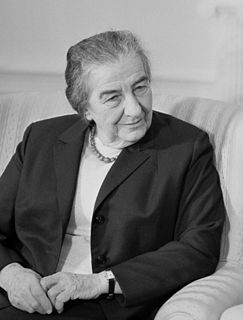A Quote by Sabina Murray
Roger Casement is an intriguing figure - humanitarian, Irish revolutionary, gay - and much had and would be written about him, there was something about his character as a conflicted man, an Irish Protestant who spent much of his time representing England in different African nations, a gay man who, true to the times, kept his sexual orientation to himself, that kept playing in my head. I read on and around him, but a historical figure is not a story - it's not even a character - so my story, the one that I would develop into Valiant Gentlemen, had yet to reveal itself.
Quote Topics
About
African
Around
Character
Develop
Different
England
Even
Figure
Gay
Gentlemen
Had
Head
Him
Himself
His
Historical
Historical Figure
Humanitarian
Intriguing
Irish
Itself
Kept
Man
Much
Nations
Orientation
Playing
Protestant
Read
Representing
Reveal
Revolutionary
Roger
Sexual
Something
Spent
Story
Time
Times
True
Valiant
Would
Would Be
Written
Related Quotes
No man could bring himself to reveal his true character, and, above all, his true limitations as a citizen and a Christian, his true meannesses, his true imbecilities, to his friends, or even to his wife. Honest autobiography is therefore a contradiction in terms: the moment a man considers himself, even in petto, he tries to gild and fresco himself. Thus a man's wife, however realistic her view of him, always flatters him in the end, for the worst she sees in him is appreciably better, by the time she sees it, than what is actually there.
If man had written the Gospels - say Shakespeare or Eugene O'Neill - the story of the gospel would have been drastically different. They would have placed the prince in halls and palaces and had him walking among the great. They would have had him surrounded by the important and significant of the time. Potentates and kings would have been His companions. But how sweetly common was the real God-man; though He had inhabited all eternity, He had come down and was subject to the rising and the setting of the sun.
He was about to go home, about to return to the place where he had had a family. It was in Godric’s Hollow that, but for Voldemort, he would have grown up and spent every school holiday. He could have invited friends to his house. . . . He might even have had brothers and sisters. . . . It would have been his mother who had made his seventeenth birthday cake. The life he had lost had hardly ever seemed so real to him as at this moment, when he knew he was about to see the place where it had been taken from him.
There was once a Bald Man who sat down after work on a hot summer's day. A Fly came up and kept buzzing about his bald pate, and stinging him from time to time. The Man aimed a blow at his little enemy, but — whack — his palm came on his head instead; again the Fly tormented him, but this time the Man was wiser and said: YOU WILL ONLY INJURE YOURSELF IF YOU TAKE NOTICE OF DISPICABLE ENEMIES.
A story once went the rounds of Israel to the effect that Ben-Gurion described me as 'the only man' in his cabinet. What amused me about is that he (or whoever invented the story) thought that this was the greatest compliment that could be paid to a woman. I very much doubt that any man would have been flattered if I had said about him that he was the only woman in the government!
There's a story about when President Lyndon Johnson visited NASA and as he was walking the halls he came across a janitor who was cleaning up a storm, like the Energizer bunny with a mop in his hand. The president walked over to the janitor and told him he was the best janitor he has ever seen and the janitor replied, "Sir, I'm not just a janitor, I helped put a man on the moon." See, even though he was cleaning floors he had a bigger purpose and vision for his life. This is what kept him going and helped him excel in his job.
He did not know that the new life would not be given him for nothing, that he would have to pay dearly for it, that it would cost him great striving, great suffering. But that is the beginning of a new story -- the story of the gradual renewal of a man, the story of his gradual regeneration, of his passing from one world into another, of his initiation into a new unknown life. That might be the subject of a new story, but our present story is ended.
I would say that I learned that the heartbreak wasn't as much about me as the fact that my partner wasn't right with himself. I see where his life has taken him, and realize that the handwriting was on the wall. There were things that I had blamed myself for, but it was really more about his choices, his needs and his journey as a person. His desire for too much of everything made it a challenging relationship.
The expectation is this low, gravelly voice for John, but I went through his early recordings and there were songs in there where the voice was so different, I wasn't even sure if it was him singing, ... So it was interesting to me that we would see him develop the Man in Black sound. I thought it was really important that his voice change as his persona slowly solidified. The music was really the doorway into the character.
I don't buy into the idea that an Irish writer should write about Ireland, or a gay writer should write about being gay. But when I found the right story, I saw it as an opportunity to write about being a teenager and being gay. Most people, whether you're gay or straight or whatever, have experienced that relationship where one person is much more interested than the other.
I heard the story of a man, a blasphemer...an atheist, who was converted singularly by a sinful action of his. He had written on a piece of paper, "God is nowhere," and ordered his child to read it, for he would make him an atheist too. The child spelled it, "God is n-o-w h-e-r-e. God is now here." It was a truth instead of a lie, and the arrow pierced the man's own heart.
That same night, I wrote my first short story. It took me thirty minutes. It was a dark little tale about a man who found a magic cup and learned that if he wept into the cup, his tears turned into pearls. But even though he had always been poor, he was a happy man and rarely shed a tear. So he found ways to make himself sad so that his tears could make him rich. As the pearls piled up, so did his greed grow. The story ended with the man sitting on a mountain of pearls, knife in hand, weeping helplessly into the cup with his beloved wife's slain body in his arms.







































